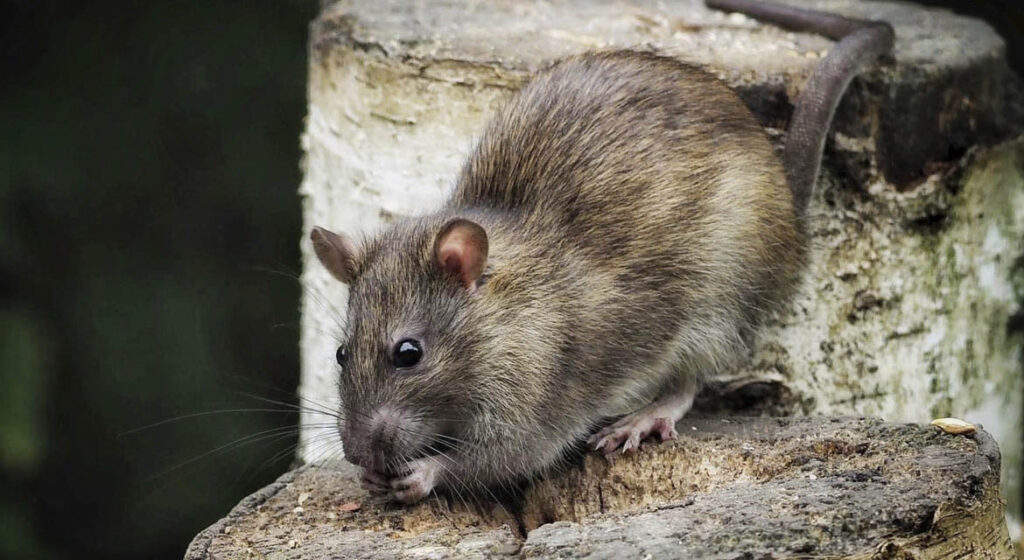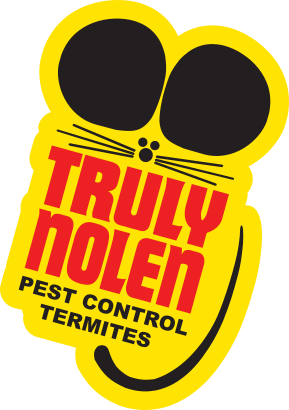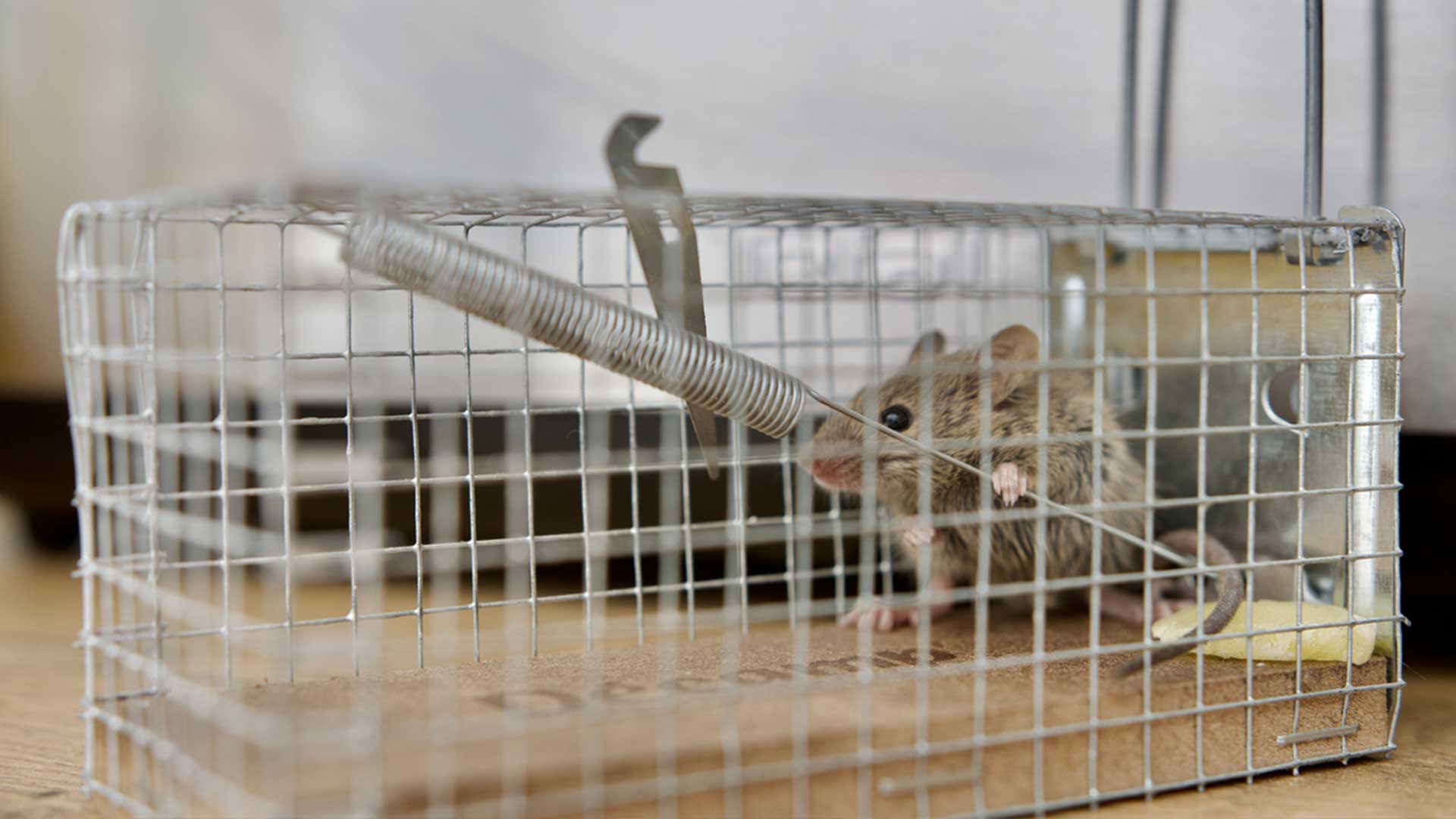
Are Rats Dangerous?
Rats are among the most common and dangerous pests that can infest a home or business. Apart from being a nuisance to have around, rats can also pose serious health risks to humans and pets alike. Here are some of the reasons why rats are considered dangerous:
- Direct Contact
- Rodent Infestations
- Rat Bites
- Electrical Wiring
- Infectious Diseases
Direct Contact
Rats are very good at adapting to their surroundings and can quickly become accustomed to living near humans. When rats are living in close proximity to humans, the risk of direct contact is high. This direct contact can lead to various health issues and diseases. Rats can easily be drawn into homes, restaurants, and offices where they can find food, shelter, and nesting sites.
Once they gain entry, rats become active at night and can be seen scurrying around the premises, looking for food and water. They can be aggressive when threatened, which can lead to biting. Rat bites can be serious and result in infections requiring immediate medical attention.
People who come into direct contact with rats risk getting infected with various diseases, including rat-bite fever and leptospirosis. These diseases can be life-threatening, and taking measures to prevent rat infestations and contact with them is crucial.
To prevent the risk of direct contact with rats, it is vital to keep your surroundings clean and free of clutter. Keeping food waste and leftovers secured, removing uneaten food, and sealing garbage cans can help. You should also fix any holes and gaps in walls, floors, and doors where rats can enter.
If you suspect a rat infestation, it is important to call a professional pest control service. A professional pest control service can provide expert advice on the best measures to control and prevent rat infestations, including using safe and effective products.
As a whole, direct contact with rats can be a severe health hazard. It is essential to take all necessary measures to protect yourself, your family, and your business from rat infestations. Prevention is key, and by keeping your surroundings clean and maintained and seeking professional help when needed, you can reduce the risk of direct contact with rats and the diseases they carry.

Truly Nolen GUARANTEE
If you’re not completely satisfied, you’ll get a full refund on your most recent service with our 100% money back guarantee.

$50 Off Year Round Pest Control
Truly Nolen is a family-owned company with 85 years of experience providing the best pest control. If you’re not completely satisfied, you’ll get a full refund on your most recent service with our 100% money back guarantee.
Rodent Infestations
Rats are notorious for reproducing quickly, meaning a small infestation can turn into a massive one in just a few weeks. This can lead to massive health risks as the rats leave behind droppings, urine, and nesting materials that can easily contaminate the environment.
Rodent infestations can be a homeowner’s worst nightmare. These pests can easily invade your home, causing damage, presenting a health risk, and generally making your life miserable. Rats and mice are the most common culprits of a rodent infestation.
One of the main issues with having rats and mice in your home is that they reproduce quickly. This means that if you spot one rodent, there will likely be many more hiding throughout your property. Additionally, they are highly adaptable creatures, making it challenging to get rid of them once they have made themselves home.
Rodents can enter your home through small holes or gaps in the walls, roofs, and floors. Once inside, they will quickly begin to look for a food source and somewhere to nest. They will chew through anything in their way to create holes in walls, floors, and ceilings. This can lead to structural damage to your home, which can be costly to repair.
In addition to physical damage, rodents can pose a significant health risk to humans. They carry infectious diseases such as leptospirosis and salmonella. Their droppings and urine can contaminate surfaces and food sources, making it easy for diseases to spread.
Taking prompt action is essential if you suspect a rodent infestation in your home. Ignoring the problem will only make it worse, as the rodents will continue to breed and cause further damage and risk to your health.
To prevent a rodent infestation, it’s essential to keep your home clean and tidy, promptly dispose of food waste and keep pet food stored away. Sealing any gaps or holes in walls, floors, and ceilings can prevent rodents from entering your home. Using traps and repellents can also be effective in getting rid of rodents.
In conclusion, rodent infestations can be a severe problem for homeowners, causing damage to property and posing a significant health risk. Taking action as soon as possible to prevent and get rid of a rodent infestation is crucial for maintaining the safety and hygiene of your home.
Rat Bites
Rats can be aggressive and territorial, and when threatened, they may resort to biting humans and pets. Rat bites can lead to infections, swelling, and in some cases, the transmission of diseases. Bites and scratches can be concerning, especially when they come from animals or rodents. These incidents can lead to various infections, such as tetanus or rabies, which can be severe or deadly if left untreated.
When an animal bites or scratches you, the first step is to thoroughly clean the wound with soap and water. This can help prevent any bacteria or viruses from entering your bloodstream. If the wound is deep, you should seek medical attention right away. Bites and scratches from rodents like rats can be particularly concerning. Rodents can carry various diseases that can be transmitted through bites or scratches. If you suspect a rodent has bitten or scratched you, it is crucial to seek medical attention immediately.
In addition to receiving proper medical care, it is important to take preventive measures to avoid bites and scratches altogether. This includes avoiding contact with wild animals, vaccinating your pets, and avoiding interactions with unfamiliar animals. By being cautious and aware of the risks, you can minimize your chances of getting bitten or scratched and stay safe and healthy.
Electrical Wiring Concerns
If you’re dealing with a rat infestation in your home or business, one of the biggest concerns is the damage they can cause to electrical wiring. Rats constantly need to gnaw on objects to file down their continuously growing teeth, and unfortunately, they often choose electrical wires as their chew toy.
The consequences of rat damage to electrical wiring can be severe. In addition to creating a fire hazard, chewed wires can cause power outages, short circuits, and other problems with your electrical system. Even if you don’t notice any immediate issues, the damage caused by rats can weaken the insulation around wires, making them more prone to failure and potentially leading to a dangerous situation down the line.
To make matters worse, rats can be particularly attracted to electrical wiring because of the warmth it generates. In the winter months, rats may be drawn to electrical wires as a source of heat, which only increases the likelihood of damage and potential fire hazards.
Fortunately, you can take steps to protect your electrical wiring from rats. One of the most effective measures is to make it as difficult as possible for rats to access the wiring in the first place. This may involve sealing any gaps or cracks in your walls or ceilings and installing metal mesh around wires and other vulnerable areas.
If you suspect that rats have already caused damage to your electrical wiring, it’s essential to have a certified electrician assess the situation as soon as possible. They can identify any areas needing repair or replacement and take steps to prevent future damage.
Overall, when it comes to dealing with a rat infestation, electrical wiring concerns should be taken seriously. By being proactive and taking steps to protect your wiring from damage, you can help ensure the safety of your property and prevent costly repairs down the line.
Infectious Diseases
Rats are known to carry various infectious diseases such as the bubonic plague, rat-bite fever, lymphocytic choriomeningitis, and many others. These diseases can be transmitted to humans directly through contact with an infected rat or indirectly through contaminated food, water, or air.
Rodent Feces and Urine
Rat droppings, urine, and nesting materials can contain harmful pathogens that can contaminate your home or workplace. Exposure to rodent feces and urine can lead to respiratory illnesses, allergies, and other health complications. When rats infest a home or property, they leave behind droppings and urine, which can be a breeding ground for bacteria and diseases. Rodent feces and urine may contain viruses, bacteria, and parasites that can harm human health.
One disease that can be spread through the feces and urine of rats is leptospirosis. This bacterial infection affects humans and animals and can be transmitted through contact with contaminated water, soil, or food. Symptoms of leptospirosis include fever, muscle aches, and vomiting, which can be fatal if left untreated.
In addition to leptospirosis, rats can carry and transmit other diseases, such as salmonellosis and E. coli. These bacterial infections can spread through contact with contaminated surfaces such as countertops, floors, and dishes.
Keeping homes and properties clean and free from food sources can reduce the risk of attracting rats. Sealing off entry and exit points can prevent rats from entering homes and buildings, and maintaining good hygiene practices can prevent the spread of bacterial infections.
In conclusion, the feces and urine of rats and other rodents can pose a significant health risk to humans. It is essential to take preventive measures and seek professional help if a rodent infestation is suspected to avoid the spread of dangerous diseases. Maintaining a hygienic environment and keeping homes and properties rodent-free can reduce the risk of exposure and keep families safe.
Access to Food
Rats are known for being resourceful, and they will eat pretty much anything they can find. This includes human food, pet food, uneaten food, and even dead rodents, which can lead to contamination of your food supply and the spread of disease. Access to food sources is one of the primary reasons why rats and other rodents invade homes. These pests are always on the lookout for a ready food supply, and they are not fussy eaters.
It is crucial always to keep your home or property clean and tidy. This means storing food properly and disposing of uneaten food immediately. In addition, you should avoid leaving food lying around, especially overnight, as this will undoubtedly attract rodents. Pet owners should also take extra precautions when feeding their pets. Pet food should be stored in airtight containers in safe, secure locations. After feeding your pets, you should clean their food bowls to avoid having any remnants lying around.
It is also essential to keep outdoor spaces clean. If you have a vegetable garden, harvest produce promptly and dispose of any leftovers immediately. You should also remove fallen fruit and dispose of it properly.
One thing to note is that rodents are excellent climbers who can access your property from overhanging trees and branches. To avoid this, you should trim any trees or bushes to prevent rodents from accessing your home.
While it may seem impossible to eliminate rodents from your home, limiting their access to food and shelter can go a long way to preventing an infestation. Keeping your living spaces clean and tidy can reduce the likelihood of attracting rodents and protect your home from the damage and health hazards they pose.
Types of Diseases Caused by Rats
Rats may look harmless, but they can pose a significant threat to human health. These rodents can spread a range of diseases through their droppings, urine, and bites, putting millions of people at risk every year. Let’s take a closer look at some of the most common diseases caused by rats.
1. Bubonic Plague – One of the most well-known diseases associated with rats is the bubonic plague. This deadly illness is caused by the Yersinia pestis bacteria, which can be transmitted to humans through the bites of infected fleas that live on rats. Symptoms of bubonic plague include fever, chills, and swollen lymph nodes, and it can be fatal if not treated promptly.
While bubonic plague is still a serious disease, it is rare in most parts of the world today. In the United States, there are typically only a handful of cases each year, mostly in rural areas of the western states. Treatment with antibiotics can be effective in treating the disease if done early enough.
2. Rat-Bite Fever – Another disease caused by rats is rat-bite fever, which is spread through contact with the saliva or urine of infected rats. Symptoms of this bacterial infection include fever, vomiting, and muscle aches. While rat-bite fever is not usually fatal, it can cause serious complications if left untreated.
The treatment for rat-bite fever usually involves antibiotics, such as penicillin or tetracycline, which are effective against the bacteria causing the infection. If the disease has progressed to Haverhill fever, hospitalization may be required for more intensive care and treatment.
3. Lymphocytic Choriomeningitis – This viral disease is spread through contact with the droppings, urine, or nesting materials of infected rats. Symptoms of lymphocytic choriomeningitis include fever, headache, and muscle aches, and it can lead to serious neurological complications in some cases.
LCM is a serious disease, and it’s best to take all precautions to avoid contracting it. If you experience any symptoms of LCM, such as fever or headache, seek medical help immediately. Early diagnosis and treatment can help prevent complications and ensure a speedy recovery.
4. Salmonellosis – Rats can also carry the salmonella bacteria, which can cause food poisoning in humans who consume contaminated food or water. Symptoms of salmonellosis include diarrhea, abdominal cramps, and fever, and it can be particularly dangerous for young children, the elderly, and those with weakened immune systems.
Salmonella is typically a self-limiting illness that resolves independently without specific treatment in healthy individuals. However, in some cases, medical intervention may be necessary, especially for individuals with severe symptoms or those who are at higher risk of complications, such as infants, elderly individuals, or individuals with weakened immune systems.
5. Leptospirosis – This bacterial infection is spread through contact with the urine of infected rats, which can contaminate soil, water, and food sources. Symptoms of leptospirosis include fever, chills, and muscle aches, and it can be fatal in some cases if left untreated.
Early treatment with antibiotics is essential to prevent complications and reduce the duration of illness. Doxycycline is commonly used as the first-line antibiotic for leptospirosis treatment. Other antibiotics, such as penicillin or ampicillin, may be prescribed for individuals who cannot take doxycycline. It is important to complete the full course of antibiotics as the healthcare professional prescribes.
To protect yourself and your family from these dangerous diseases, it is essential to take steps to prevent rat infestations. With proper precautions, you can significantly reduce the risk of exposure to these harmful illnesses and stay safe and healthy.

$50 Off Year Round Pest Control
Truly Nolen is a family-owned company with 85 years of experience providing the best pest control. If you’re not completely satisfied, you’ll get a full refund on your most recent service with our 100% money back guarantee.
Rat Infestation Damage to Property
Rat infestations can cause a lot of damage to both residential and commercial properties. Aside from the health risks that rats bring, they can also destroy your property and belongings. Here are some of the ways that rat infestations can damage your property:
1. Gnawing of electrical wires
Rats constantly need to gnaw on objects as their teeth continuously grow. Unfortunately, one of the things they love to chew on is electrical wires. When rats gnaw on electrical wires, they create a fire hazard that can cause serious damage to your property and even put your family or employees at risk.
2. Contamination of food source
Rats are known for their love of food, and they can cause significant damage to your food supplies. They can get into your pantry and leave behind droppings and urine, contaminating your food and making it unsafe for consumption. This can be a major problem for businesses that sell food, as rats can destroy entire stocks of inventory, leading to huge losses.
3. Damage to building structures
Rats can chew through almost anything, including wood, plastic, and concrete. Over time, this can cause severe damage to the structural integrity of your building. Even a few rats can cause significant damage to walls, flooring, and ceilings. This can lead to costly repairs and potentially unsafe living or working conditions.
4. Nesting materials
Rats need a place to live and will use your property as their nesting site. Whether in your walls or attic, rats will shred and chew through insulation and packaging to create a suitable living space. This can increase the risk of fires if they happen to chew on electrical wires or insulation.
Rat infestations can cause significant damage to your property and belongings. They can chew through electrical wires, contaminate your food source, damage building structures, and use nesting materials that can increase the risk of fires. It’s crucial to take steps to prevent rat infestations and seek professional help as soon as possible if you suspect a rat problem on your property.
How Truly Nolen Gets Rid of Rats
If you’re dealing with a rat infestation in your home or business, you want a solution that’s both effective and safe. That’s where Truly Nolen comes in.
We’re a trusted pest control company with over 80 years of experience in the industry. We have a proven track record of successfully eliminating rat infestations using humane, eco-friendly methods.
The first step in getting rid of rats is thoroughly inspecting your property. Our Truly Nolen pest professionals will identify all potential entry points and nesting areas, as well as any other factors contributing to the infestation.
Based on their findings, we’ll develop a customized treatment plan tailored to your situation. This may include trapping and removing the rats, sealing off entry points and gaps in walls or floors, and disinfecting and deodorizing the affected areas to help prevent re-infestation.
Our highly-trained experts also understand the importance of addressing the root cause of the infestation. They’ll work with you to implement preventative measures, such as sealing food sources and removing clutter, to discourage rats from returning.
One of the key advantages of working with us is our commitment to using green, environmentally-friendly solutions. We avoid harsh chemicals and instead rely on innovative, non-toxic treatments that won’t harm your family, pets, or the environment.
In addition to rat infestations, we offer a wide range of pest control services for both residential and commercial properties. Whether you’re dealing with termites, bed bugs, or roaches, their team of experts has the knowledge and experience to quickly and effectively eliminate the problem.
When it comes to getting rid of rats, it’s important to choose a pest control company you can trust. With our professional pest experts, you can rest assured that you’re getting top-quality service that’s safe, effective, and eco-friendly.

$50 Off Year Round Pest Control
Truly Nolen is a family-owned company with 85 years of experience providing the best pest control. If you’re not completely satisfied, you’ll get a full refund on your most recent service with our 100% money back guarantee.
Frequently Asked Questions
How do I know if I have a rat infestation?
Signs of a rat infestation include droppings, gnaw marks on food packaging or structures, greasy rub marks along walls or baseboards, scampering or squeaking sounds at night, and sightings of live or dead rats. A professional inspection can help confirm the presence of rats. Learn More!
Are rats dangerous?
Rats can pose various risks. They can transmit diseases such as leptospirosis and salmonellosis, cause structural damage by gnawing on wires and wood, contaminate food and surfaces with their droppings and urine, and their presence can trigger allergies and asthma symptoms in some individuals. Learn more about rats
How do I prevent rats from entering my property?
Rat prevention measures include sealing any gaps or holes in the building’s exterior, keeping vegetation trimmed away from structures, storing food in sealed containers, properly disposing of garbage, and maintaining cleanliness and sanitation practices.
Can I get rid of rats on my own?
While DIY rat control methods may be effective for small infestations, larger or persistent infestations often require professional assistance. Pest control professionals have the expertise, tools, and knowledge to effectively eliminate rats and implement preventive measures.
How long does it take to get rid of a rat infestation?
The duration of rat control can vary depending on the severity of the infestation and the effectiveness of control measures. It typically takes several weeks to completely eliminate a rat infestation, but ongoing monitoring and preventive efforts are necessary for long-term control.

